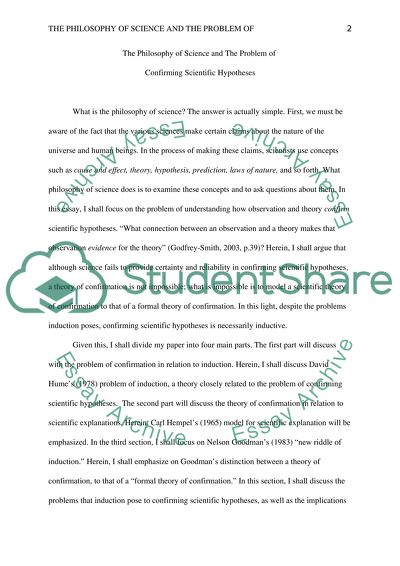Cite this document
(“The Philosophy of Science and The Problem of Confirming Scientific Essay”, n.d.)
Retrieved from https://studentshare.org/environmental-studies/1419404-the-philosophy-of-science-and-the-problem-of-confirming-scientific-hypotheses
Retrieved from https://studentshare.org/environmental-studies/1419404-the-philosophy-of-science-and-the-problem-of-confirming-scientific-hypotheses
(The Philosophy of Science and The Problem of Confirming Scientific Essay)
https://studentshare.org/environmental-studies/1419404-the-philosophy-of-science-and-the-problem-of-confirming-scientific-hypotheses.
https://studentshare.org/environmental-studies/1419404-the-philosophy-of-science-and-the-problem-of-confirming-scientific-hypotheses.
“The Philosophy of Science and The Problem of Confirming Scientific Essay”, n.d. https://studentshare.org/environmental-studies/1419404-the-philosophy-of-science-and-the-problem-of-confirming-scientific-hypotheses.


